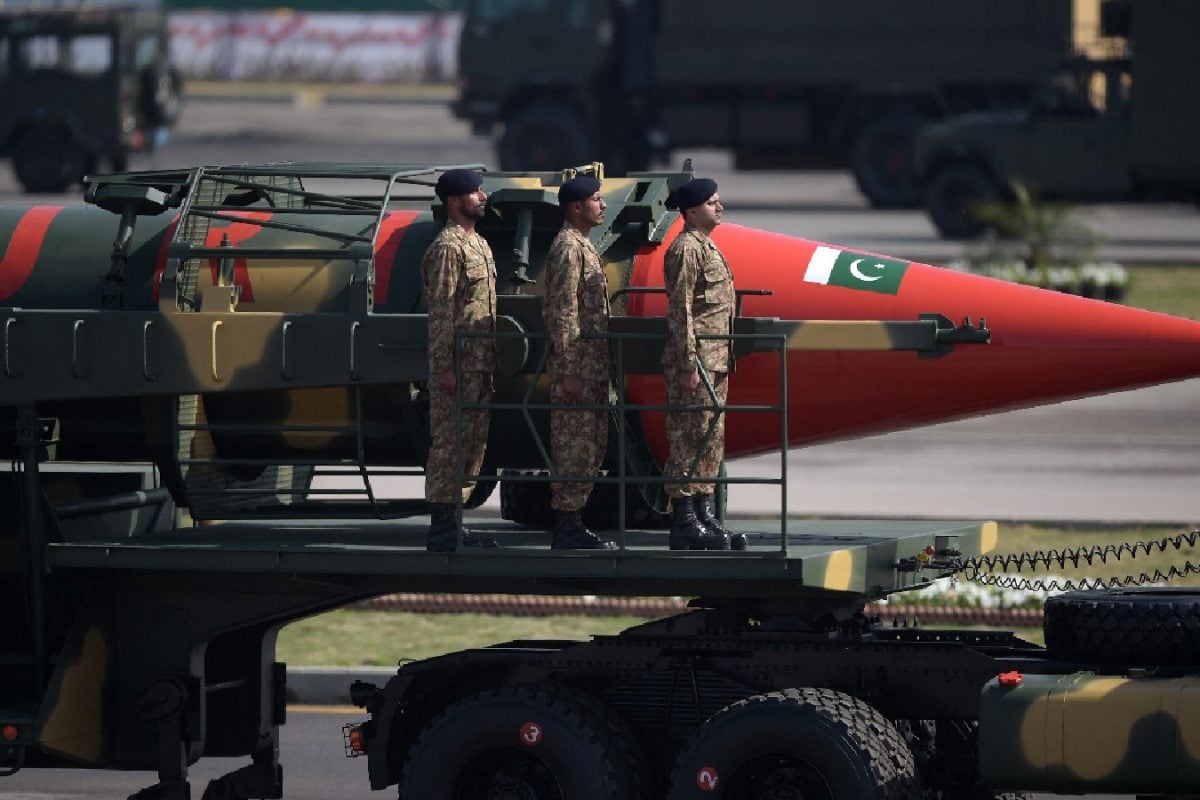

Pakistan's Chief of Army Staff, General Asim Munir, has sparked international controversy with recent remarks made on American soil, raising questions about the credibility and implications of his statements regarding Pakistan's nuclear capabilities. Addressing an event in Tampa, Florida, Munir warned of a potential "nuclear war," stating that Pakistan would "take half the world down" if faced with an existential threat in a future conflict with India. These remarks, delivered on the 80th anniversary of the Nagasaki bombing, have ignited debate about Pakistan's nuclear doctrine and the potential for regional instability.
Analyzing the Threat:
Munir's statement should be viewed within the context of the complex relationship between Pakistan and India. The two nations have a history of conflict, and Pakistan views India as an existential threat. Pakistan has been modernizing its nuclear arsenal, with estimates suggesting it could possess around 200 warheads by 2025. This rapid growth has led some to project that Pakistan could become the fifth-largest nuclear power in the world. Unlike India, Pakistan has not adopted a "no first use" nuclear policy, maintaining the option to use nuclear weapons in response to conventional military threats.
Geopolitical and Economic Pressures:
Pakistan's nuclear posture is also influenced by its economic and geopolitical realities. The country has faced significant economic challenges, including high inflation, rising energy prices, and a depreciating currency. While there are signs of gradual macroeconomic recovery in 2025, the nation still grapples with substantial external debt and the need for economic reforms. These economic pressures, combined with regional security concerns, contribute to Pakistan's reliance on its nuclear deterrent.
International Reactions:
India has strongly condemned Munir's statements, calling Pakistan an irresponsible nuclear state controlled by its military. Indian government sources have suggested that the United States' backing of the Pakistani military emboldens such behavior, raising concerns about the safety and security of Pakistan's nuclear arsenal. The US has designated Pakistan as a "phenomenal partner" in counterterrorism, but tensions remain in the region, particularly with India and China.
The Reality Check:
While Munir's statement is alarming, several factors need to be considered. Firstly, such statements can be interpreted as a form of deterrence, aimed at discouraging potential aggression against Pakistan. Secondly, Pakistan's nuclear arsenal is believed to be under strict control, although concerns about the weapons falling into the hands of non-state actors persist. Thirdly, Pakistan's foreign policy in 2025 is focused on economic diplomacy and regional stability, suggesting a desire to avoid conflict.
However, the potential consequences of a nuclear conflict in South Asia are catastrophic, making it crucial to de-escalate tensions and promote dialogue. The international community must encourage Pakistan and India to engage in peaceful negotiations and adopt confidence-building measures to reduce the risk of nuclear escalation.
In conclusion, while General Asim Munir's nuclear threat is a cause for concern, it is essential to analyze the statement within the context of Pakistan's security concerns, economic pressures, and foreign policy objectives. The international community must work towards de-escalating tensions in the region and promoting a peaceful resolution to the ongoing disputes between Pakistan and India.